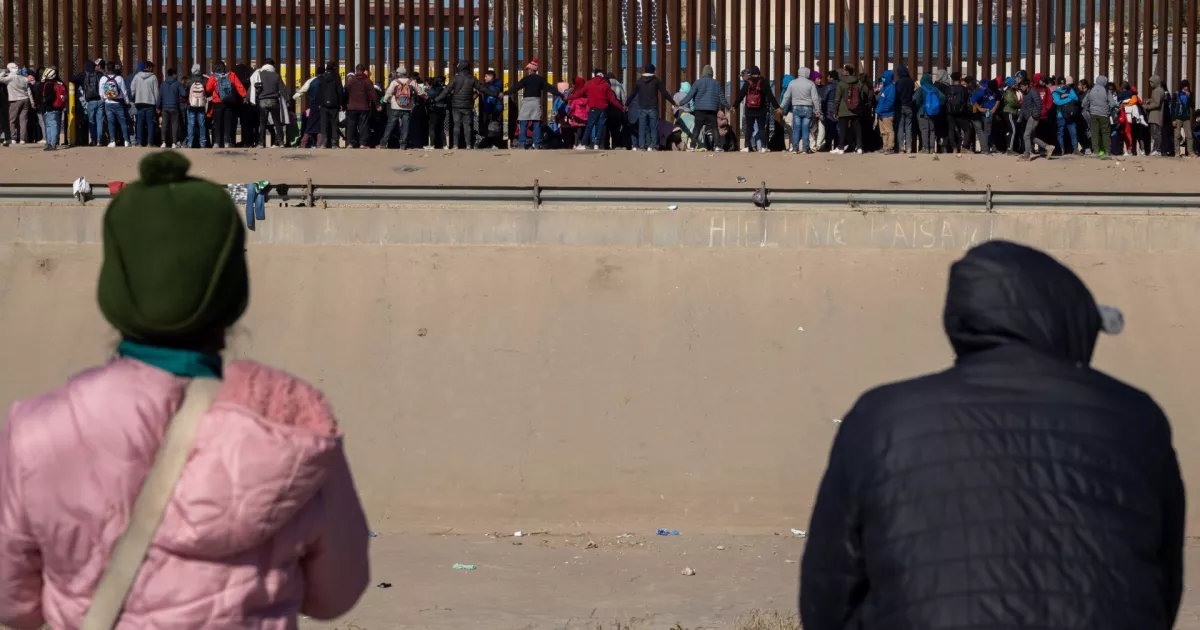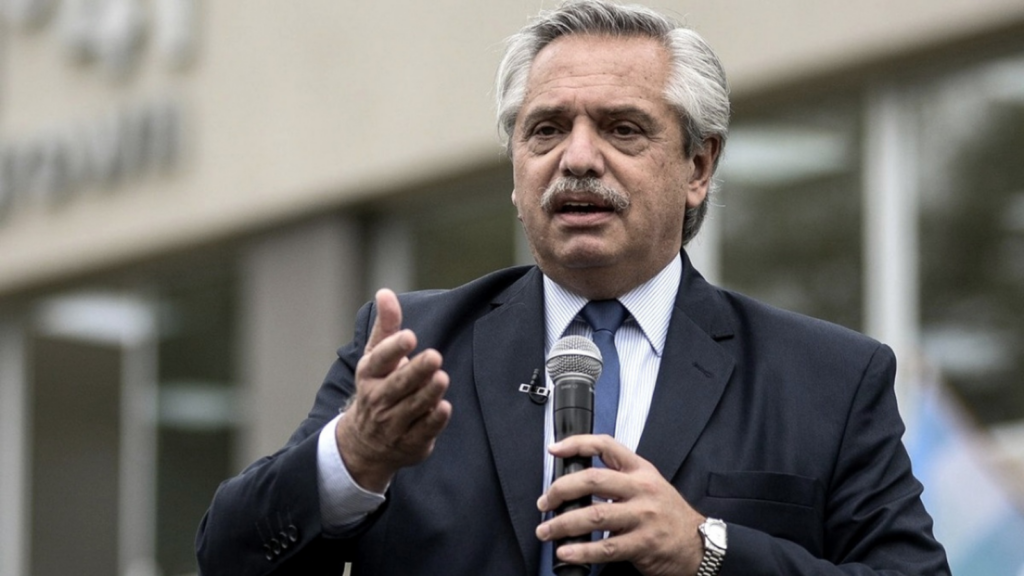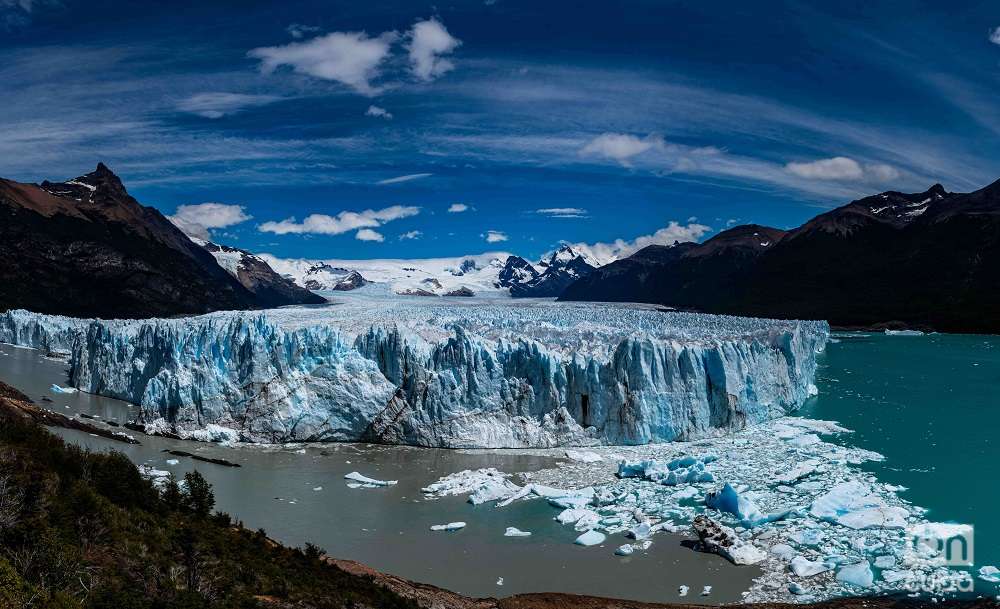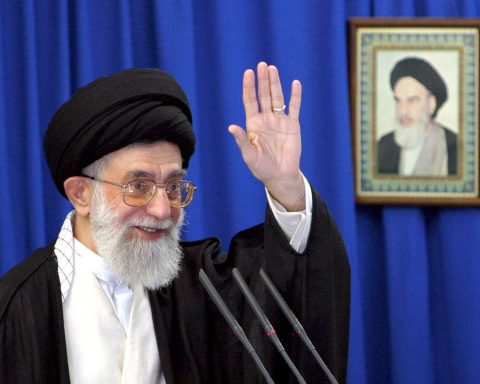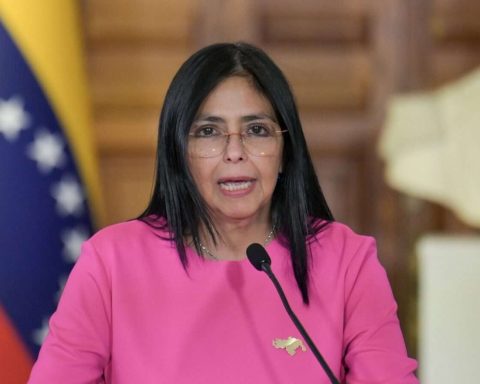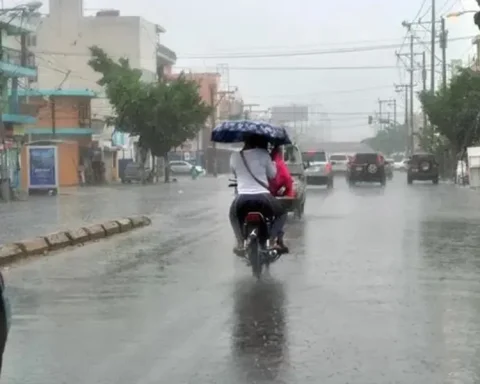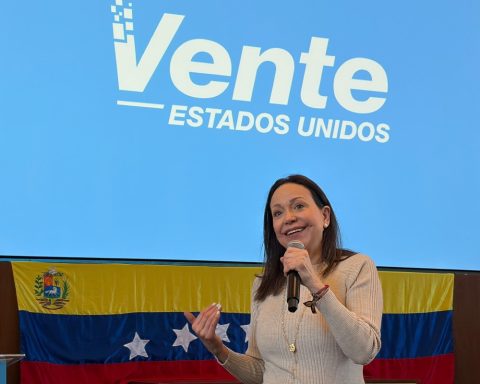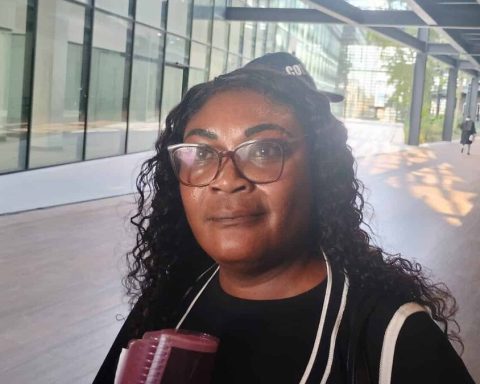“That they help us, that they let us pass, that we are suffering a lot here in Mexico,” said Márquez, 32.
Biden visited the border, for the first time as president, days after he announced a new policy aimed at curbing illegal immigration, which has been criticized for limiting access to asylum.
The two-pronged approach offers legal pathways to enter the United States for Cubans, Nicaraguans, Haitians and Venezuelans who have sponsors in the country, but expels people from those countries back to Mexico if they attempt to cross the border without permission.
(Darkroom)
Mexican immigration agents and state police patrol the concrete banks of the Rio Grande that divides Ciudad Juárez and El Paso, as groups of families try to climb through loops of concertina wire to enter the United States.
“Get down,” Erlan Garay, from Honduras, told a Colombian woman and her three children, including an eight-year-old boy carrying a Spider-Man toy.
“They are going to ask for asylum, they have their chance,” he said, adding that he would find another place to smuggle through, shrugging at a drop of blood where the fence pricked his hand.
Márquez said he and his partner, 19-year-old Yalimar Chirinos, do not qualify for the new legal entry program because they lack a US sponsor.
“The laws are constantly changing, every week,” said Chirinos, wearing a black hoodie and a single pink and blue glove to try to keep out the cold.
The couple has spent five months in Mexico after crossing several countries and the dangerous jungle of the Darien, between Colombia and Panama. At night they sleep on the street, without a tent or blankets, hugging each other for warmth, wary of criminals known to rob and kidnap immigrants.
At one point they crossed undetected into Texas, but after several days without food or a place to stay, they turned themselves in to US authorities, who sent them back to Mexico.
Márquez said he will hold out for another 15 days in the hope of finding a legal route to the United States, before looking for a way to return to Venezuela.
“I don’t want to be here anymore,” she said, breaking down in tears. “Mr. President, if you are going to deport me, deport me to our land, not here to Mexico.”
Others were unfazed, even after being expelled to Mexico.
“Throw me wherever you want, I’ll be back again,” said Jonathan Tovar, 29, from behind the fence of the Mexican immigration office in Ciudad Juárez. “I want the president of the United States to give me, my family, the opportunity.”
Edited in Spanish by Javier López de Lérida
